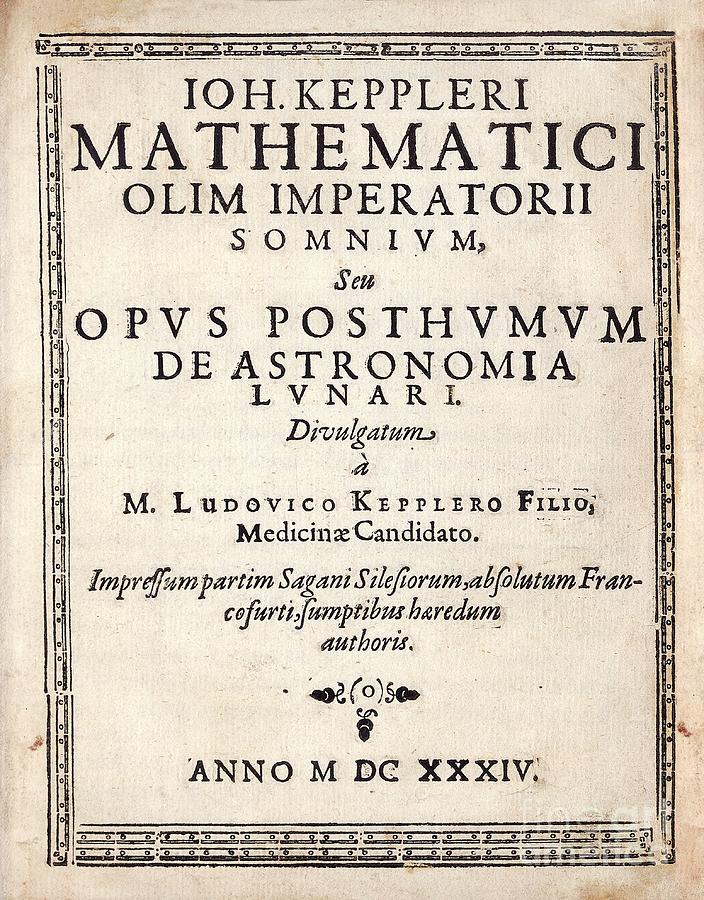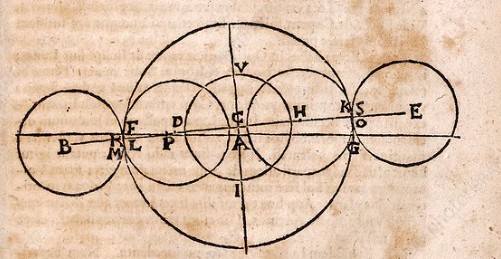Many cognitive and social tasks have been solved through some form of technology. Writing is a solution to the evanescent condition of oral speech. It is a common theme to refer to Socrates' mistrust of writing, something we paradoxically know through the writings of his pupil. He feared memory would be damaged, and he was probably right, but memory by itself is not the only or best means to share and develop knowledge.
Last week I have been focusing on applying for public funds for different projects. One of them is the translation of Johannes Kepler’s Dream, or Lunar Astronomy. The text is a short story in Latin based on a dissertation Kepler wrote at the Tübingen University in 1593. In it, Kepler studied astronomical phenomena from the perspective of the moon. Due to the restrictions of the time with Copernican thought, Kepler could not publish it as a full book and kept it with him for many years.

In 1609, while Kepler was engaged in ludic astronomical disputes, he added the Dream section. And later, from 1622 to 1630, after his mother was accused of witchcraft, defended by Kepler and released, but died from the hardships of the imprisonment, he wrote the complete notes of the text, which are far larger than the short story itself.
I’ve always wanted to publish a Spanish version of this text. I studied Latin at college for three semesters only, but I have enough rudimentary tools to address the text at a surface level. To apply for the funds, I needed a 10-page sample done in a week.
I gathered some bibliographical material, an academic English translation available online, and I worked with Gemini and ChatGPT using different roles to create the translation.
Many things came to mind during this process. First, I was fascinated by the dialogical possibilities. The first obvious dialogue is between me and the models. However, I decided to give each a simple role. I used Gemini 2.5 flash to act as a philologist with expertise in the XVI and XVII centuries Latin. I then used Microsoft’s Copilot to be a peer review reader, and Gemini again to evaluate the clarity of the result as a non-expert reader.
I believe there are many cultural problems in the Human Computer Interaction (HCI) around LLM prompting. One example is the concept of persona. We tend to prompt things like: “You are an expert in *, Act as the best * with knowledge in…”. These prompts can work great; however, they bias us towards the idea that we are actually reading an expert, and we may bias the machine with a confidence that is not necessarily correlated with the precision of the result. Sometimes, experts say I don’t know. Current LLMs sometimes say they don’t know too. But they still output imprecise things with no shame whatsoever, because in the end, they still are sophisticated statistical models that play to reason. I wonder if LLMs would hallucinate less if they had social shame.
While developing the 10 pages, I read all the results and chain of thought given by Gemini and compared them with the English translations and my own reading of the original Latin. I questioned Gemini using my knowledge and the analysis from the peer review model. I then did a meticulous proofreading and evaluated its clarity and precision with the final Gemini model.
In two days, I had the 10 pages translated. I would probably have to apologize to my teacher, Antonio Arbea, for doing this, but it became clear to me that without his lessons, this process would’ve been much more of a black box and the results much less reliable. The critical reading and editing skills were key during the whole process.
The most relevant idea I found during this process was the displacement of writing towards the imperative genre of the prompt. I thought of Wittgenstein’s Philosophical Investigations and how it addressed communication, at some level, as a collection of games of commands. I am pretty sure writing, as we know it, will continue to exist. I have confidence in it as I type these words myself. However, writing quality imperative prompts and sharp editing skills will become a fundamental skill for many writers in the world. I don’t mean creative or blog writers, I mean everyday writers with bureaucratic necessities.
Many research is being done around writing and the use of Artificial Intelligence. It is definitely a fascinating moment for that area of study. For now, I can only hope to see those of you who are reading this on the day we publish the translation.
Reference:
- Kepler, Johannes, 1571-1630.[Somnium. English] Kepler’s Somnium: the dream, or posthumous work on lunar astronomy / edited [and translated] by Edward Rosen. University of Wisconsin Press. Madison, 1967.
Link
